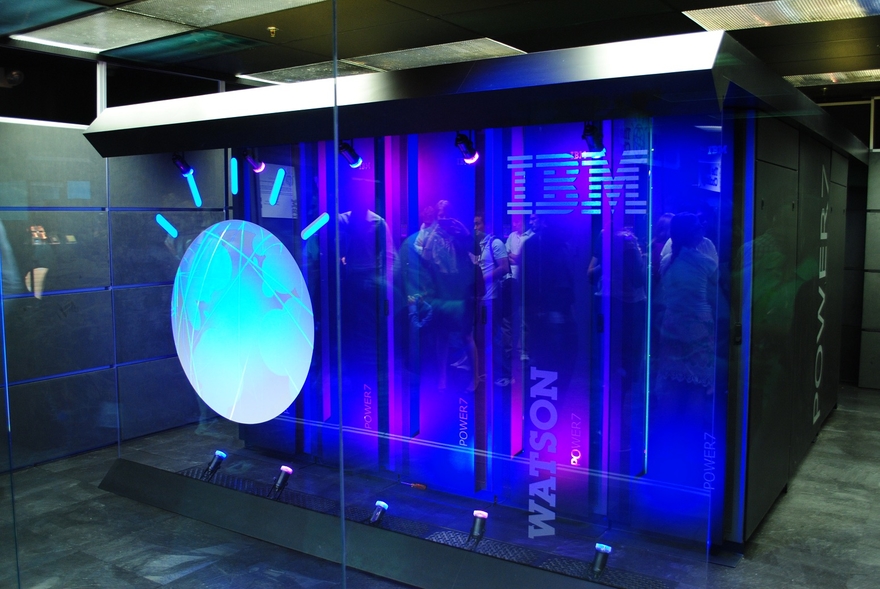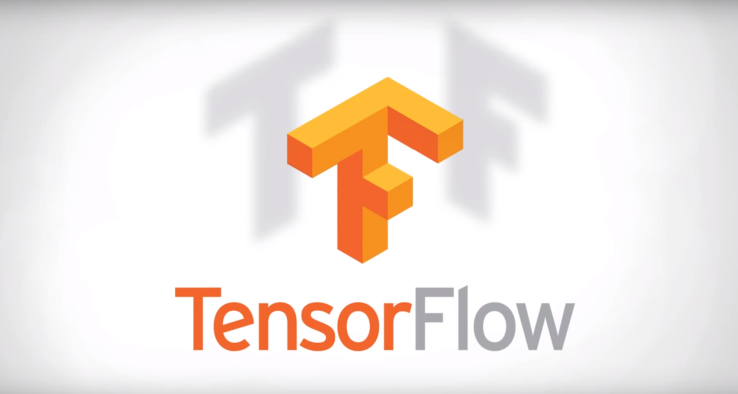 Next week, 50,000 of our closest friends will gather together in Orlando to learn about the latest trends in the healthcare IT industry. I’ll be giving a few keynote addresses, trying to predict what the Trump administration will bring, identify those technologies that will move from hype to reality, and highlighting which products are only “compiled” in Powerpoint - a powerful development language that is really easy to modify! The Trump administration is likely to reduce regulatory burden but is unlikely to radically change the course of value-based purchasing. This means that interoperability, analytics, and workflow products that help improve outcomes while reducing costs will still be important...
Next week, 50,000 of our closest friends will gather together in Orlando to learn about the latest trends in the healthcare IT industry. I’ll be giving a few keynote addresses, trying to predict what the Trump administration will bring, identify those technologies that will move from hype to reality, and highlighting which products are only “compiled” in Powerpoint - a powerful development language that is really easy to modify! The Trump administration is likely to reduce regulatory burden but is unlikely to radically change the course of value-based purchasing. This means that interoperability, analytics, and workflow products that help improve outcomes while reducing costs will still be important...
IBM Watson
See the following -
2019 Forecast: Amara's Law: Health Data, Gene Editing, and Artificial Intelligence
 I have two predictions for 2019. One is that at the end of 2019 our healthcare system will still look a lot like it looks now. Oh, sure, we'll see some cool new technologies, some innovative start-ups, some surprising corporate pairings, some moves by Big Tech, and some promising clinical findings. But our healthcare system moves slowly, and many in it have strongly vested interests in the status quo. The second prediction is that, more than ever, Amara's Law still prevails. In case you don't know this "law," it is attributed to Roy Amara, who was President of the Institute for the Future, among other things, and goes like this...
I have two predictions for 2019. One is that at the end of 2019 our healthcare system will still look a lot like it looks now. Oh, sure, we'll see some cool new technologies, some innovative start-ups, some surprising corporate pairings, some moves by Big Tech, and some promising clinical findings. But our healthcare system moves slowly, and many in it have strongly vested interests in the status quo. The second prediction is that, more than ever, Amara's Law still prevails. In case you don't know this "law," it is attributed to Roy Amara, who was President of the Institute for the Future, among other things, and goes like this...
- Login to post comments
Artificial Intelligence and Machine Learning Bias has Dangerous Implications
 Algorithms are everywhere in our world, and so is bias. From social media news feeds to streaming service recommendations to online shopping, computer algorithms—specifically, machine learning algorithms—have permeated our day-to-day world. As for bias, we need only examine the 2016 American election to understand how deeply—both implicitly and explicitly—it permeates our society as well. What’s often overlooked, however, is the intersection between these two: bias in computer algorithms themselves. Contrary to what many of us might think, technology is not objective...
Algorithms are everywhere in our world, and so is bias. From social media news feeds to streaming service recommendations to online shopping, computer algorithms—specifically, machine learning algorithms—have permeated our day-to-day world. As for bias, we need only examine the 2016 American election to understand how deeply—both implicitly and explicitly—it permeates our society as well. What’s often overlooked, however, is the intersection between these two: bias in computer algorithms themselves. Contrary to what many of us might think, technology is not objective...
- Login to post comments
Artificial Intelligence Is Not as Smart as You (or Elon Musk) Think
 In March 2016, DeepMind’s AlphaGo beat Lee Sedol, who at the time was the best human Go player in the world. It represented one of those defining technological moments like IBM’s Deep Blue beating chess champion Garry Kasparov, or even IBM Watson beating the world’s greatest Jeopardy! champions in 2011. Yet these victories, as mind-blowing as they seemed to be, were more about training algorithms and using brute-force computational strength than any real intelligence...
In March 2016, DeepMind’s AlphaGo beat Lee Sedol, who at the time was the best human Go player in the world. It represented one of those defining technological moments like IBM’s Deep Blue beating chess champion Garry Kasparov, or even IBM Watson beating the world’s greatest Jeopardy! champions in 2011. Yet these victories, as mind-blowing as they seemed to be, were more about training algorithms and using brute-force computational strength than any real intelligence...
- Login to post comments
Bingo Medicine: Are EHRs Oppressive Straightjackets?
 For several decades, software builders have tried to help doctors practice medicine more efficiently and more effectively. As is often the case with good intentions, the results turned out to be a mixed bag of goods, with paternalistic overtones from the helpers and mostly resentment and frustration from those supposedly being helped. Whether we want to admit it or not, the facts of the matter are that health IT and EHRs in particular have turned from humble tools of the trade to oppressive straightjackets for the practice of medicine. Somewhere along the way, the roles were reversed, and clinicians of all stripes are increasingly becoming the tools used by technology to practice medicine.
For several decades, software builders have tried to help doctors practice medicine more efficiently and more effectively. As is often the case with good intentions, the results turned out to be a mixed bag of goods, with paternalistic overtones from the helpers and mostly resentment and frustration from those supposedly being helped. Whether we want to admit it or not, the facts of the matter are that health IT and EHRs in particular have turned from humble tools of the trade to oppressive straightjackets for the practice of medicine. Somewhere along the way, the roles were reversed, and clinicians of all stripes are increasingly becoming the tools used by technology to practice medicine.
- Login to post comments
College Students Tackle PTSD at First DC Hackathon
 More than 50 college students from across the world gathered this previous weekend at HackDC 2015, the first Hackathon dedicated to crowdsourcing innovative ways to address the serious problem of Post-Traumatic Stress Disorder (PTSD) by creating mobile applications and solutions. The event, which started on Friday, went through Sunday afternoon. Held at the Richard J. Ernst Community Cultural Center in the Annandale Campus of the Northern Virginia Community Colleges (NVCC), HackDC 2015 provided the participants with access to food, sleeping facilities, and showers so that they could work straight through the weekend.
More than 50 college students from across the world gathered this previous weekend at HackDC 2015, the first Hackathon dedicated to crowdsourcing innovative ways to address the serious problem of Post-Traumatic Stress Disorder (PTSD) by creating mobile applications and solutions. The event, which started on Friday, went through Sunday afternoon. Held at the Richard J. Ernst Community Cultural Center in the Annandale Campus of the Northern Virginia Community Colleges (NVCC), HackDC 2015 provided the participants with access to food, sleeping facilities, and showers so that they could work straight through the weekend.
- Login to post comments
DARPA Offers Free Watson-Like Artificial Intelligence
If you wonder what the government has done for you lately, take a look at DeepDive. DeepDive is a free version of IBM's Watson developed in the same Defense Advanced Research Projects Agency (DARPA), but now available free and open-source...
- Login to post comments
Data Science Jobs Report 2019: Python Way Up, Tensorflow Growing Rapidly, R Use Double SAS
 In my ongoing quest to track The Popularity of Data Science Software, I've just updated my analysis of the job market. To save you from reading the entire tome, I'm reproducing that section here.One of the best ways to measure the popularity or market share of software for data science is to count the number of job advertisements that highlight knowledge of each as a requirement. Job ads are rich in information and are backed by money, so they are perhaps the best measure of how popular each software is now. Plots of change in job demand give us a good idea of what is likely to become more popular in the future. Read More »
In my ongoing quest to track The Popularity of Data Science Software, I've just updated my analysis of the job market. To save you from reading the entire tome, I'm reproducing that section here.One of the best ways to measure the popularity or market share of software for data science is to count the number of job advertisements that highlight knowledge of each as a requirement. Job ads are rich in information and are backed by money, so they are perhaps the best measure of how popular each software is now. Plots of change in job demand give us a good idea of what is likely to become more popular in the future. Read More »
- Login to post comments
Document Search Tool May Boost Treatment of Vets with Congestive Heart Failure
A specialist in biomedical informatics, Dr. Jennifer Garvin has long been interested in improving the care of heart failure patients through evidence-based medical therapy. Cardiovascular disease, the number-one killer of Americans, is the leading cause of hospitalization in VA. Garvin, with the VA Salt Lake City (Utah) Health Care System, thus obtained VA funding and collaborated with colleagues to advance care in this area. She focused on the use of natural language processing, technology similar to that used by IBM Watson in VA...
- Login to post comments
Experts Say IBM Watson’s Flaws are Rooted in Data Collection and Interoperability
 Despite being backed by a significant budget and the marketing power of a major technology company, IBM Watson appears to be falling short of expectations when it comes to revolutionizing cancer care. The shortcomings of IBM’s premier artificial intelligence system—made famous by its appearance on Jeopardy in 2011 and later co-pted to provide support for oncologists—are linked to a number of factors, according to an in-depth investigation by Stat that included interviews with doctors and artificial intelligence experts from around the world...
Despite being backed by a significant budget and the marketing power of a major technology company, IBM Watson appears to be falling short of expectations when it comes to revolutionizing cancer care. The shortcomings of IBM’s premier artificial intelligence system—made famous by its appearance on Jeopardy in 2011 and later co-pted to provide support for oncologists—are linked to a number of factors, according to an in-depth investigation by Stat that included interviews with doctors and artificial intelligence experts from around the world...
- Login to post comments
Google Open-Sources The Machine Learning Tech Behind Google Photos Search, Smart Reply And More
 Google says today it’s making the machine learning technology that powers a number of its products, including Google Photos search, speech recognition in the Google app, and the newly launched “Smart Reply” feature for its email app Inbox. Called TensorFlow, the technology helps makes apps smarter, and Google says it’s far more powerful than its first-generation system – allowing the company to build and train neural nets up to five times faster than before.
Google says today it’s making the machine learning technology that powers a number of its products, including Google Photos search, speech recognition in the Google app, and the newly launched “Smart Reply” feature for its email app Inbox. Called TensorFlow, the technology helps makes apps smarter, and Google says it’s far more powerful than its first-generation system – allowing the company to build and train neural nets up to five times faster than before.
- Login to post comments
Halamka Gears Up for HIMSS 2017
- Login to post comments
Halamka's 2016 Predictions for Health IT
 As the year ends and we archive the accomplishments and challenges of 2015, it’s time to think about the year ahead. Will innovative products and services be social, mobile, analytics, and cloud (SMAC)? Will wearables take off? Will clinicians be replaced by Watson? Here are my predictions...Apps will layer on top of transactional systems empowered by FHIR...a better approach is crowdsourcing among clinicians that will result in value-added apps that connect to underlying EHRs via the protocols suggested in the Argonaut Project (FHIR/OAuth/REST). One of our clinicians has already authored a vendor neutral DICOM viewer for images, a patient controlled telehealth app for connecting home devices, and a secure clinical photography upload that bypasses the iPhone camera roll. That’s the future.
As the year ends and we archive the accomplishments and challenges of 2015, it’s time to think about the year ahead. Will innovative products and services be social, mobile, analytics, and cloud (SMAC)? Will wearables take off? Will clinicians be replaced by Watson? Here are my predictions...Apps will layer on top of transactional systems empowered by FHIR...a better approach is crowdsourcing among clinicians that will result in value-added apps that connect to underlying EHRs via the protocols suggested in the Argonaut Project (FHIR/OAuth/REST). One of our clinicians has already authored a vendor neutral DICOM viewer for images, a patient controlled telehealth app for connecting home devices, and a secure clinical photography upload that bypasses the iPhone camera roll. That’s the future.
- Login to post comments
Health Tap: Intelligent Interface for Patients
 allows patients to connect with doctors online, and additionally hosts an enormous repository of doctors’ answers to health questions. In addition to its sheer size and its unique combination of services, HealthTap is ahead of most other health care institutions in its use of data. I talked with founder and CEO Ron Gutman about a new service, Dr. AI, that triages the patient and guides her toward a treatment plan: online resources for small problems, doctors for major problems, and even a recommendation to head off to the emergency room when that is warranted. The service builds on the patient/doctor interactions HealthTap has offered over its six years of operation, but is fully automated...
allows patients to connect with doctors online, and additionally hosts an enormous repository of doctors’ answers to health questions. In addition to its sheer size and its unique combination of services, HealthTap is ahead of most other health care institutions in its use of data. I talked with founder and CEO Ron Gutman about a new service, Dr. AI, that triages the patient and guides her toward a treatment plan: online resources for small problems, doctors for major problems, and even a recommendation to head off to the emergency room when that is warranted. The service builds on the patient/doctor interactions HealthTap has offered over its six years of operation, but is fully automated...
- Login to post comments
IBM's Watson Helps Veterans Transition To Civilian Life
...In Big Blue’s latest effort, the company partnered with USAA, a financial services provider for military members and their families, to pilot a new Watson project aimed at improving the transition process for the more than 150,000 active service members who separate from the military each year...
- Login to post comments
My Phone Says I've Looked Better
 Current AI can sift through millions of photos to pick you out of a crowd, with varying degrees of success. Camera angles, make-up, hats, quality of image all factor into how successful such software is. Given the recent rapid rates of improvement, though, these are bumps in the road, not insurmountable barriers. Other software can process your facial expressions, allowing them to make some good guesses about your emotions. If you are a marketer, or a law enforcement officer, this information might be gold, but if your privacy is important, it might be a scary invasion. Someone is always watching. What I want to know is when this AI can tell if I look sick.
Current AI can sift through millions of photos to pick you out of a crowd, with varying degrees of success. Camera angles, make-up, hats, quality of image all factor into how successful such software is. Given the recent rapid rates of improvement, though, these are bumps in the road, not insurmountable barriers. Other software can process your facial expressions, allowing them to make some good guesses about your emotions. If you are a marketer, or a law enforcement officer, this information might be gold, but if your privacy is important, it might be a scary invasion. Someone is always watching. What I want to know is when this AI can tell if I look sick.
- Login to post comments